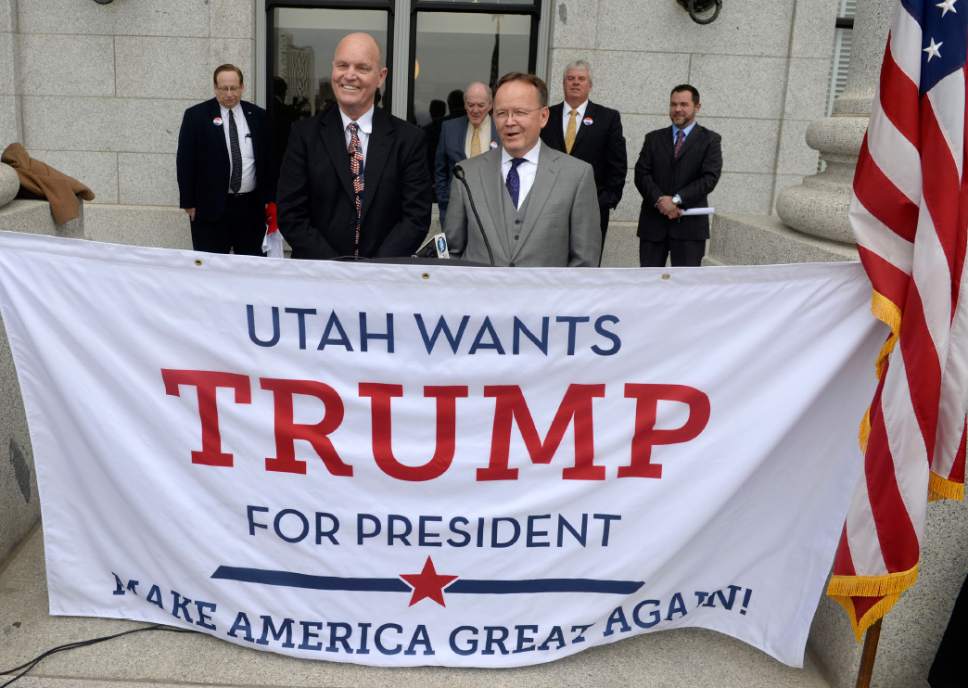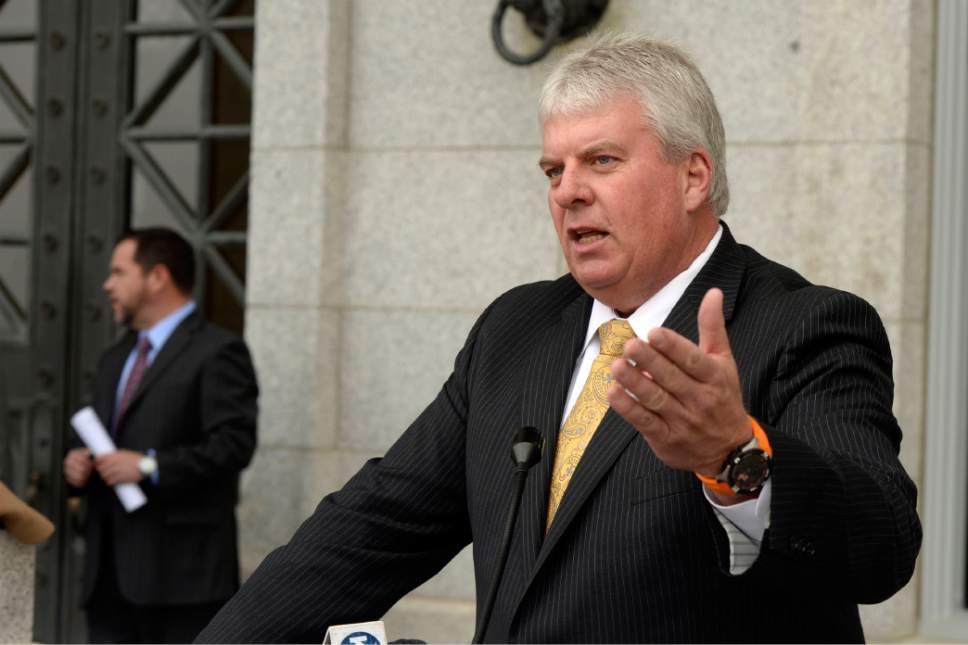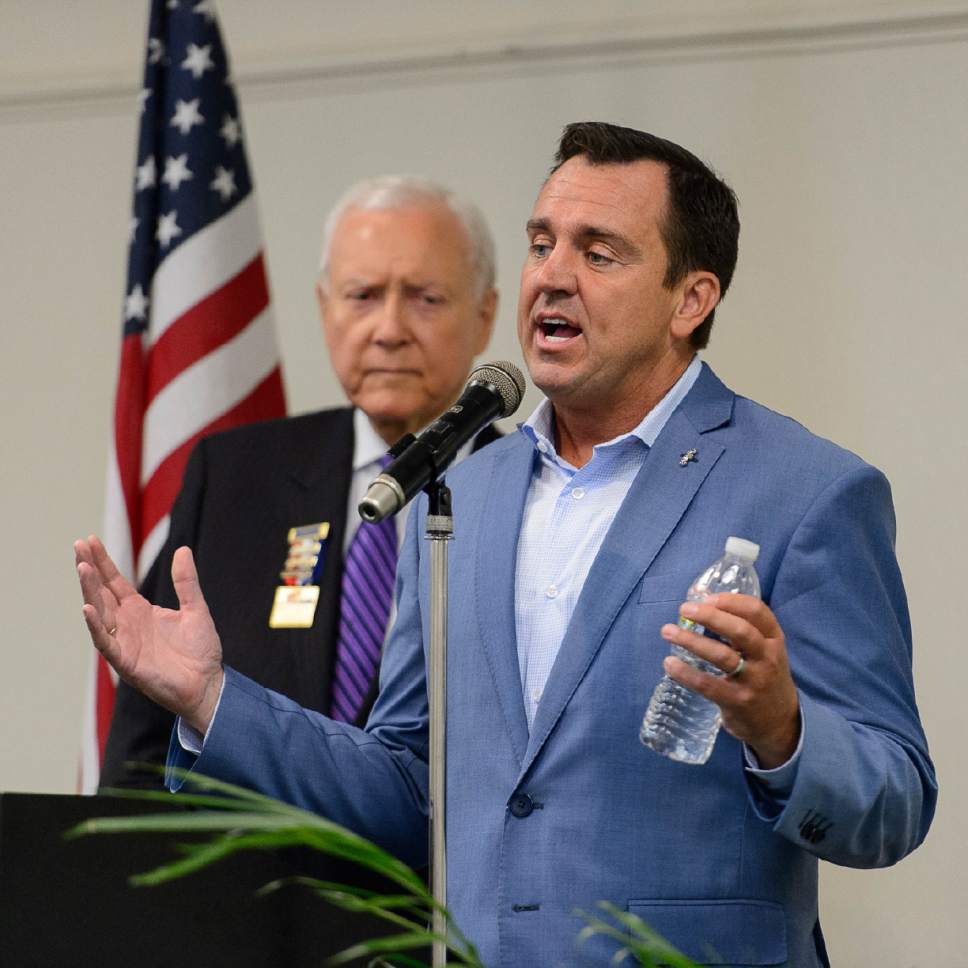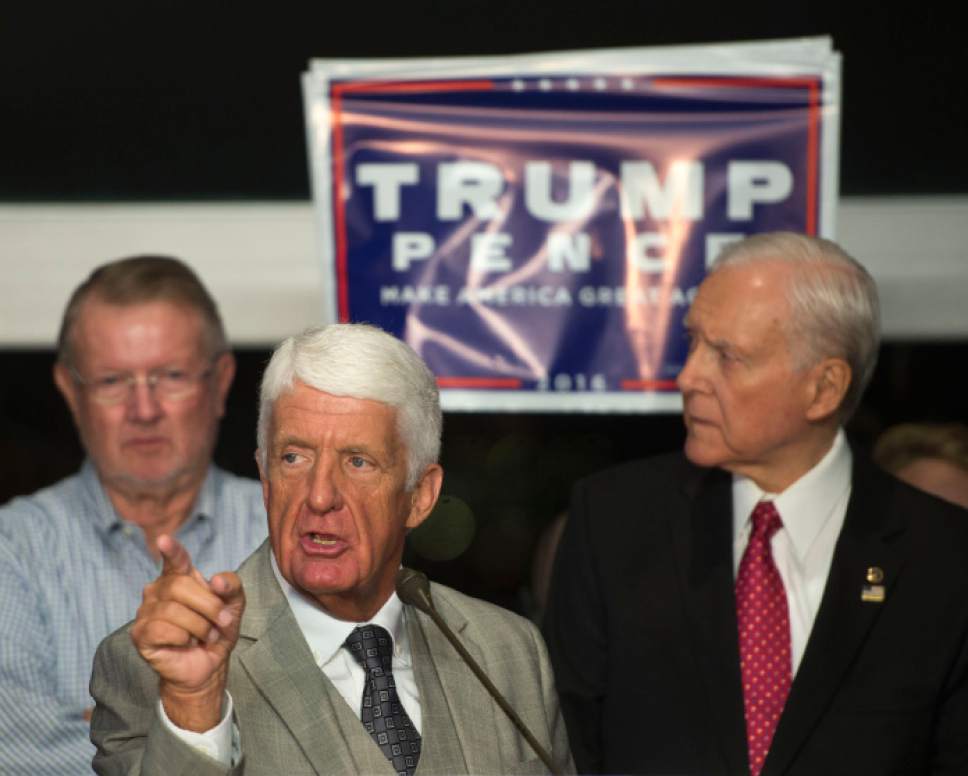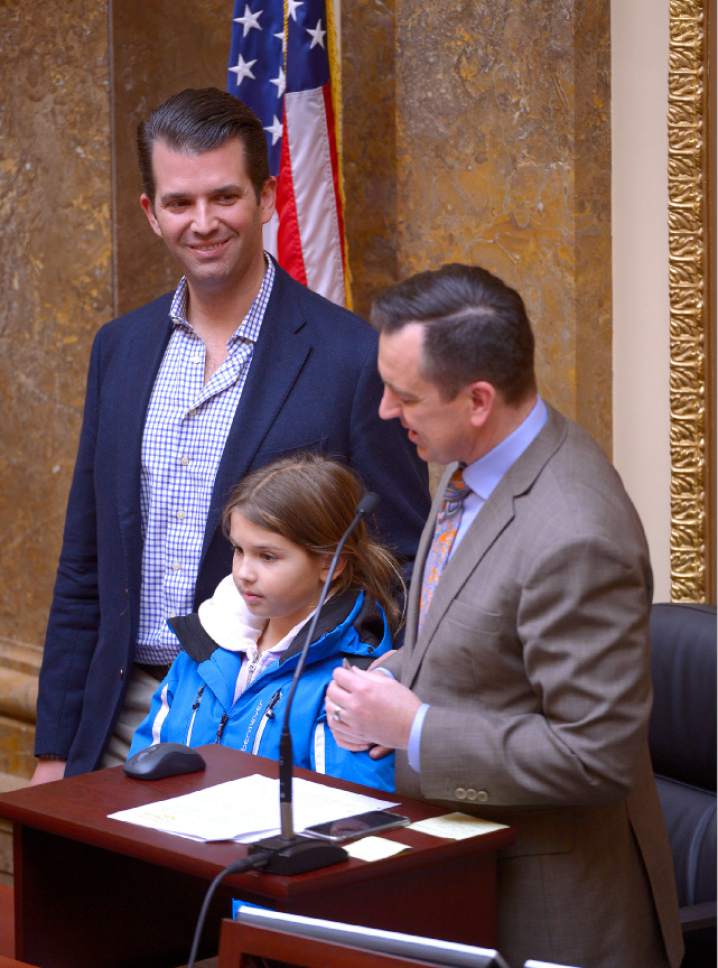This is an archived article that was published on sltrib.com in 2016, and information in the article may be outdated. It is provided only for personal research purposes and may not be reprinted.
A conservative Supreme Court. Lower taxes. A more robust military. And, finally, the dismantling of Obamacare.
Utah Republicans, even those critical of Donald Trump, are thrilled with the chance to reshape the federal government and wipe away some of President Barack Obama's accomplishments.
Not only will Trump assume the presidency in January, but Republicans will maintain control of the Senate and House, marking the first time since the early 2000s that the party will hold all the levers of power.
"Now that we have it, as Republicans, I hope we don't blow it," said state Sen. Deidre Henderson, R-Spanish Fork.
She expects Trump and Congress to lower the corporate and personal income-tax rates and replace the Affordable Care Act, often called Obamacare, with a health care plan more tied to market forces. She voted for Trump with those policies in mind.
"I wanted to get a Republican in the White House who would work with Congress," Henderson said, though it wasn't an easy vote for her to cast.
Trump had his worst primary campaign showing in Utah and independent conservative Evan McMullin siphoned off 20 percent of the vote on Election Day. In unofficial results, Trump won the state's six electoral votes with 46.6 percent of the vote.
Like many Utah conservatives, Henderson saw Trump as a flawed nominee.
"I was concerned about his personality, his judgment," she said. "I was concerned with some of the things he said about women."
She considered voting for McMullin, but ultimately decided that either Trump or Democrat Hillary Clinton would be president, and she stuck with her party. She's glad she did.
Henderson expects Trump, the president-elect, to reach out to Republicans who disagree with him, as well as Democrats and other groups.
"He was in campaign mode. He's now in governing mode," she said. "He's going to have to bridge those gaps and I think he will."
Utah House Speaker Greg Hughes has far fewer reservations about Trump, who he bullishly backed after Sen. Marco Rubio, R-Fla., withdrew during the GOP primaries.
"I'm excited for the country and my kids and the world they are going to live in," he said.
Hughes also noted he's cultivated a friendship with Donald Trump Jr., an avid hunter who visits Utah regularly and has dropped into the state Capitol a few times.
Hughes, U.S. Sen. Orrin Hatch, state Attorney General Sean Reyes and influential conservative activist Don Peay were Trump's biggest backers in the state, while Mitt Romney, Gov. Gary Herbert, Lt. Gov. Spencer Cox, Sen. Mike Lee and Rep. Mia Love all refused to back Trump.
Hughes rejects the concerns he's heard that Trump may dismiss Utah's elected leaders because of what the president-elect previously identified as his "tremendous problem" with voters here.
"You had some of us who were with him and fought the good fight," Hughes said. "I think that will carry the day for Utah rather than the other factors in play in this election."
Hughes wants to see Trump rescind Obama's executive orders and limit the use of unilateral executive power. At the same time, he expects Trump to lean heavily on Congress to move forward on his agenda on issues such as trade, taxes and boosting the military budget.
And as the "outsider of outsiders to become president," Hughes expects Trump to challenge political norms in getting what he wants.
"The conventional wisdom and some of the rules and the way things worked would actually be different," he said. "I think he's going to approach this job in a way we have never seen."
Hatch, who leads the powerful Senate Finance Committee, wants to work with Trump to reform the tax code, replace Obamacare and rein in the "regulatory bureaucracy."
"With a Republican president and Republican majorities in Congress, we will have meaningful opportunities to advance constructive policies to address the challenges facing our country," Hatch said in a statement. "Having campaigned hard and supported Republican candidates across the country, I'm especially eager now to help enact a positive reform agenda."
Hatch, who backed Trump after initially supporting Jeb Bush in the primaries, said he was impressed with Trump's tone in his victory speech and hopes that signals his approach going forward. "I'm optimistic we can come together as a party — and as a country — to work for the common good," Hatch said.
Reyes, who has advised Trump's campaign on the Supreme Court and minority issues, said he's "particularly pleased" that a Republican will get to nominate judges, but he also wants to see action on human trafficking, suicide, opioid addiction, nutrition and the relationship between police and the communities they serve.
"Our party has a tremendous opportunity to lead and get meaningful work accomplished in D.C.," he said. "But there is a great responsibility that comes with that opportunity — to not waste time, to be bold but wise, strong and caring, to be respectful and listen to differing views and not abuse the opportunity we earned."
Immigration reform is one Trump priority and he plans to act swiftly to increase the deportation of undocumented people convicted of crimes and to push legislation to build a wall along the border with Mexico. Utah's Republicans tend to support less stringent immigration enforcement measures.
And Utah has been more open to accepting refugees from Syria and Iraq than many Republican states. Trump has called for shutting down the flow of refugees from areas where Islamic extremists are active.
"I know the rhetoric has been a little bit shrill, but I've also talked to [Vice President-elect] Mike Pence and I think some of that has been hyperbole," said Herbert, Utah's governor. "We are a welcoming community. We understand how to do it correctly and we want to share those ideas with a new president and a new administration."
Herbert has refused to say whom he voted for, but he said his opposition to Trump during the election shouldn't hurt his ability to work with the new president.
"I've been able to work with the Obama administration and we're on different sides of the aisle. We always have differences of opinion and disagreements, but that doesn't mean we ought to be enemies," Herbert said.
The governor recognized the Republican opportunity, particularly after eight years of a Democrat in the White House, and did nothing to lower expectations of major conservative change.
He said: "I think there will be no excuses."
Twitter: @mattcanham
— Tribune reporters Thomas Burr and Robert Gehrke contributed to this story


